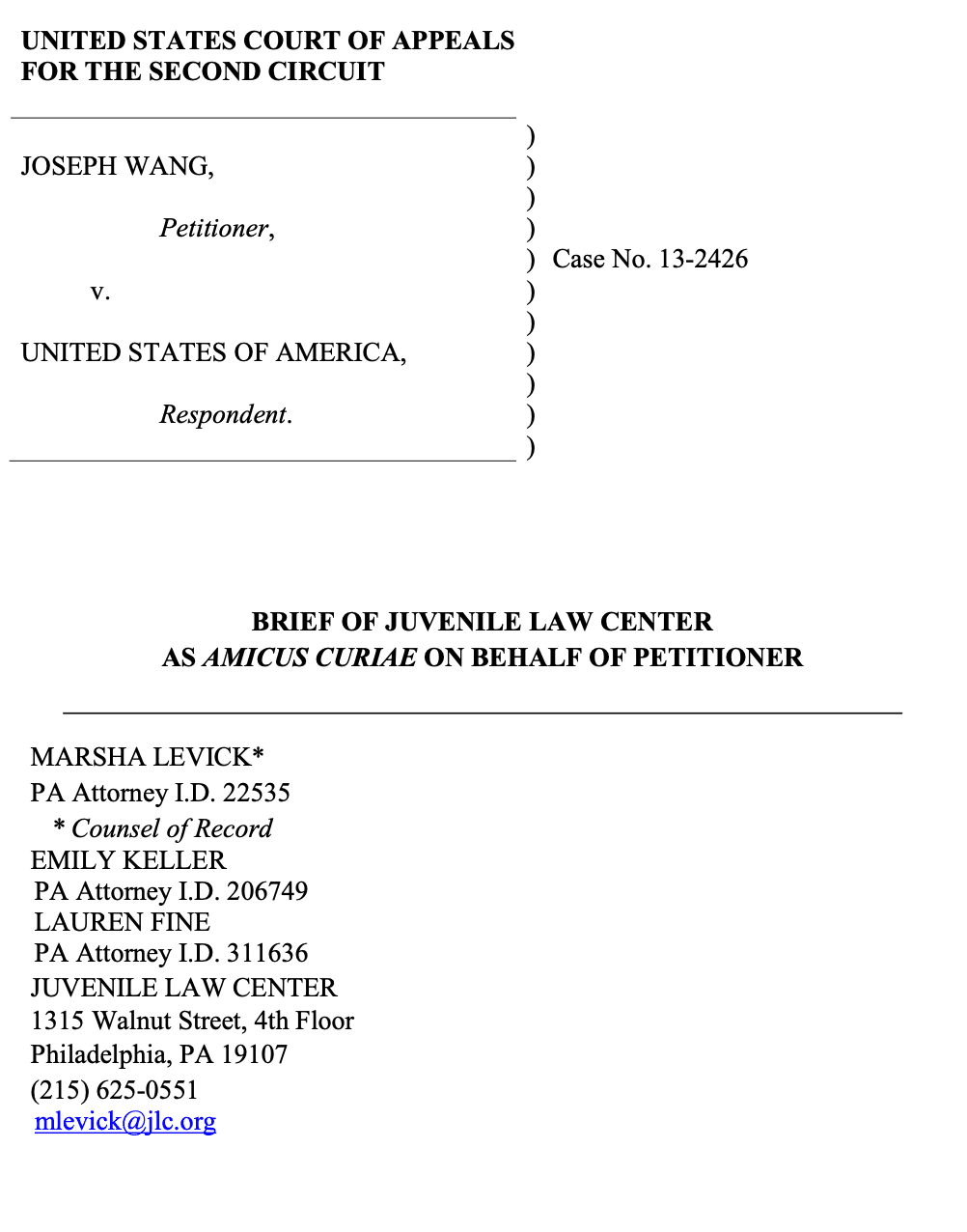
Summary of Argument
In Miller v. Alabama, 567 U.S. , 132 S. Ct. 2455 (2012), the United States Supreme Court held that the mandatory imposition of sentences of life without the possibility of parole on juvenile offenders convicted of murder is unconstitutional. At the time Petitioner was sentenced for crimes he committed as a juvenile, federal law mandated a life without parole sentence for his murder-based offenses. As applied to juvenile offenders, this mandatory scheme is unconstitutional pursuant to Miller.
First, the United States Supreme Court has already answered the question of retroactivity by applying Miller to Kuntrell Jackson’s case, which was before the court on collateral review. Moreover, Miller announced a substantive rule, which is consistent with the Supreme Court’s interpretation of the Eighth Amendment in light of its evolving understanding and appreciation of the significance of child and adolescent development. Further, because the Miller Court found a violation of the Eighth Amendment, the rule announced necessarily must provide retroactive relief. If the Court determines that a punishment is cruel and unusual, it inescapably deems the same punishment, albeit imposed before the decision, similarly cruel and unusual; nothing about the nature of the punishment or its disproportionality is lessened by the date upon which it was imposed. In other words, categorically, any Eighth Amendment decision barring a particular sentence must be retroactive, including Miller. Finally, even assuming the rule is procedural, Miller is a “watershed rule[] of criminal procedure” under Teague v. Lane, 489 U.S. 288, 300 (1989). For each of these reasons, and as this Court and others have already found, the holding in Miller applies retroactively to inmates, such as Petitioner, serving mandatory life without parole sentences for crimes committed as juveniles who have exhausted both direct and collateral appeal rights and seek to file a successive petition pursuant to 28 U.S.C. § 2244(b).